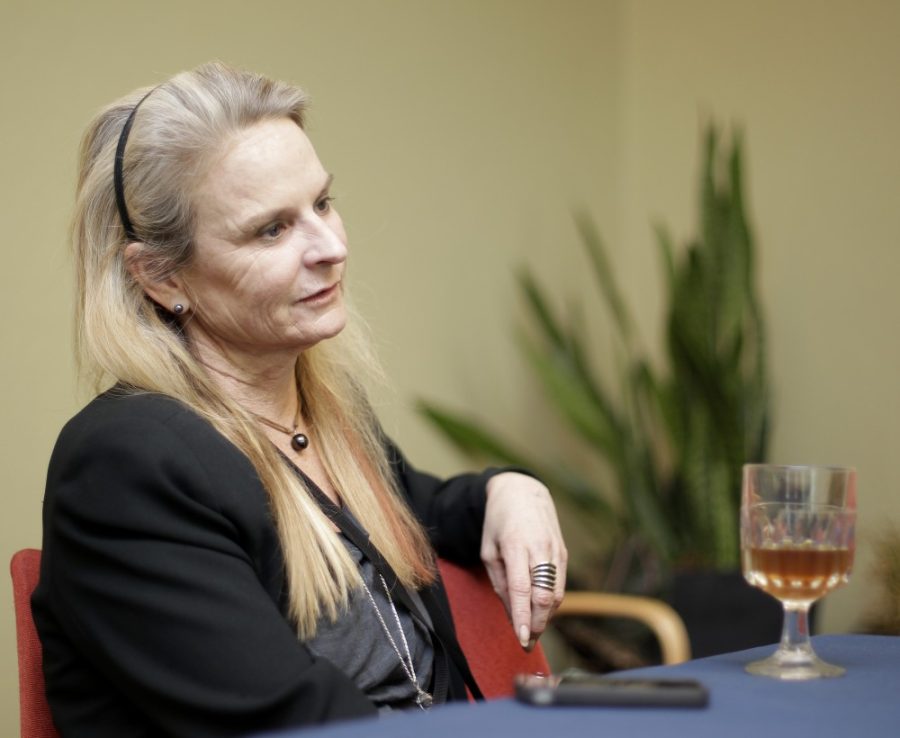As part of National Eating Disorders Awareness Week and the UA’s Love Your Body Day, Campus Health Service hosted a film screening of “America the Beautiful 2: The Thin Commandments” in Gallagher Theater on Wednesday.
Nationally recognized body image activist and author Carolyn Costin attended the screening. Costin, who contributed to the film and is also the executive director of the Monte Nido eating disorder treatment facility, followed up the film with a discussion session. Before the event, Costin took questions from the
Daily Wildcat about her involvement with the film and her experiences treating eating disorders.
Daily Wildcat: What made you want to get involved with the film?
Costin: I guess in a nutshell, I do a ton of work with people who have eating disorders. So this movie is a way to help with prevention. It’s not like seeing the film is going to prevent people from getting eating disorders, but we’re trying to bring home the message that diets don’t work. People need to focus on health as opposed to weight. Our culture sends a lot of messages about weight loss and the importance of being thin, but where is the antidote to that? I think this film is the antidote, just a little bit.
What has been the film’s response so far?
It’s interesting — the eating disorder community really embraces it. I found that, at times, the general public had a lot of questions about the film. It stirs them up because it covers a lot of stuff they might not know about. In that way it is kind of cool because when you show it to the eating disorder community, it’s like preaching to the choir, but when you show it to a college campus or a bigger population it’s like waking people up.
What do you want people to take away from the film?
Diets don’t work. I don’t know if viewers will be able to take that away from the watching the film, because the truth is we can say they don’t work over and over. Take your health into your own hands. Don’t just trust what you read in a magazine and newspaper. Don’t just trust what a physician says. Educate yourself and learn ways to take care of yourself.
You say diets don’t work. Why do you think that?
We have information that shows 95 percent of people who go on a diet and lose weight gain it back. And that is shown in study after study, so it’s strange we have a culture that is so into dieting when we have that information that says diets doesn’t work. People need to focus on their health rather than a number on a scale.
Do you think eating disorders or body image distortion an issue on college campuses?
Yes, I was just at a private college two nights ago that had signs up in its bathrooms that said, “Please stop throwing up you are ruining our bathroom.” Acid from the vomit was wearing through the pipes.
Why do you think eating disorders are more prevalent in females than males?
For every one person who has an eating disorder, there are probably 100 or 200 girls that hate their bodies, are depressed over the way they look or feel fat when they are at a healthy body weight because they don’t look like the models. More males are developing eating disorders, and I am starting to get more calls from males seeking treatment. But there is no doubt in my mind it is about a 90 percent female illness.
What do you think is the biggest challenge facing raising awareness on eating disorders or improving thoughts on body image?
I think sometimes people might not know they have an eating disorder, they don’t even know the behaviors associated with an eating disorder. People with eating disorders see guests on the Oprah show and think, “That’s not me, and I don’t have a problem. I’m not eating out of trash cans or vomiting 20 times a day.”
The weight loss industry, a multibillion-dollar industry, tells everyone to lose weight. It feels like were going up against an uphill battle.









